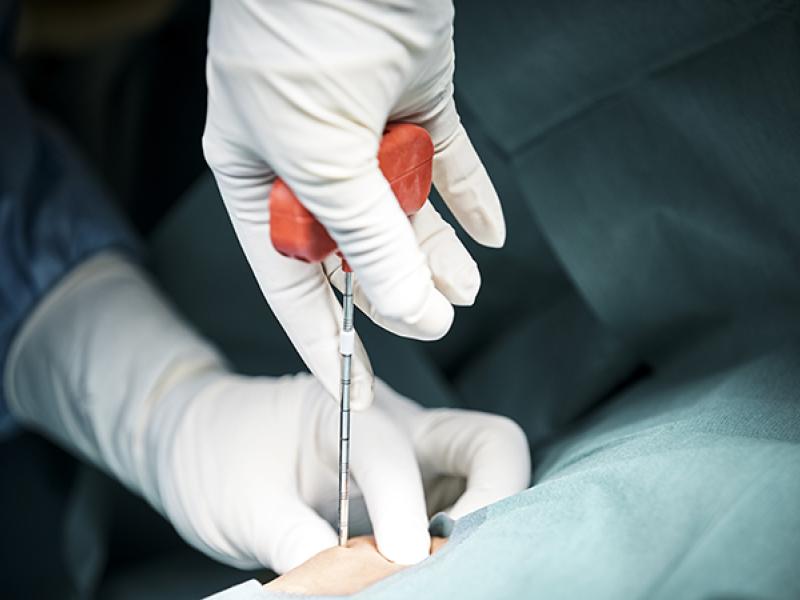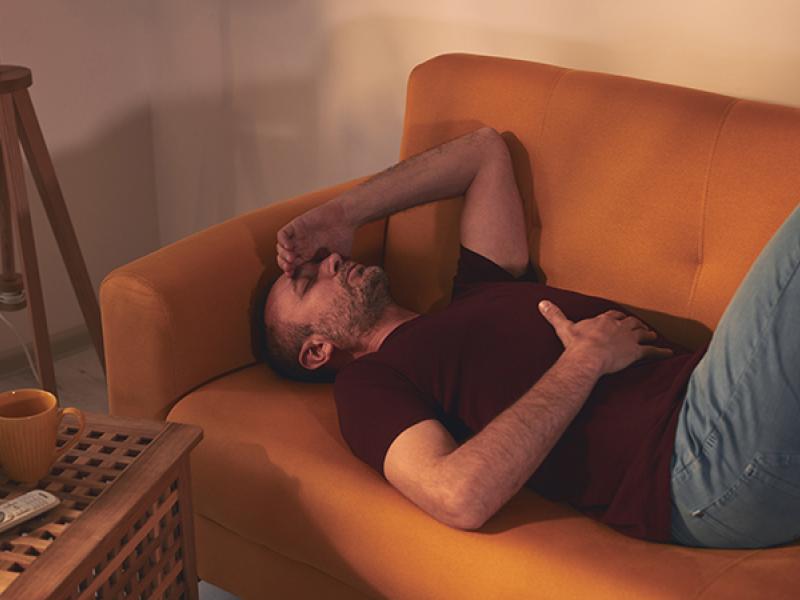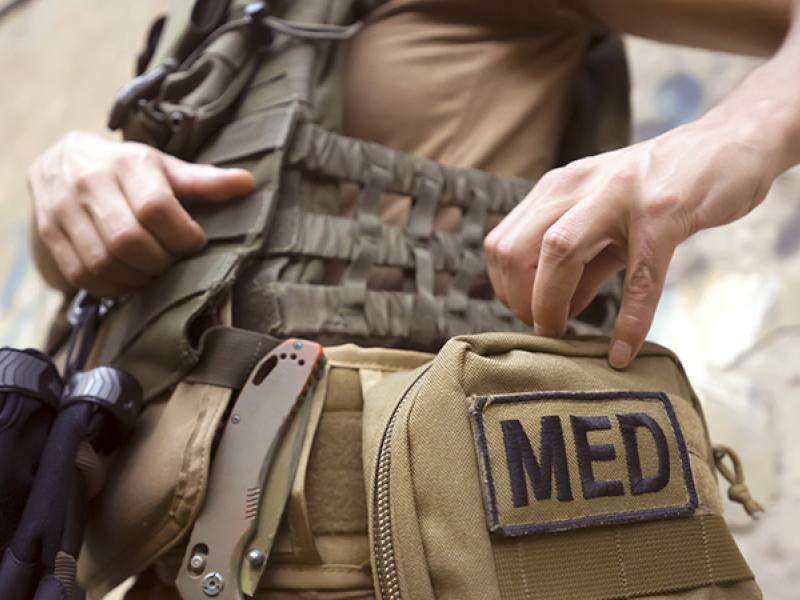The knowledge base, procedural skill level and personal qualities required of a well-trained critical care and pulmonary medicine practitioner are extremely broad. In addition, developing self-directed learning skills is an essential part of any program of adult education.
A variety of rotations, both required and elective, are available for each trainee’s education.
See Rotation Locations in 360 view
Primary Required Rotations
- Pulmonary and Critical Care Medicine Consults: The purpose of this rotation is to provide formal instruction and opportunities to acquire expertise in the prevention, evaluation and management of patients with (but not limited to) obstructive lung disease, pulmonary malignancy, pulmonary infections, diffuse interstitial lung disease, occupational and environmental lung diseases, iatrogenic respiratory diseases, acute lung injury, pulmonary manifestations of systemic diseases, respiratory failure, disorders of the pleura and mediastinum, and genetic and developmental disorders of the respiratory system, perioperative evaluations and consults for patients in other ICUs. Fellows have opportunities to perform bronchoscopies, including endobronchial ultrasound, thoracentesis and chest tube placement. Fellows also become skilled at interpreting pulmonary function tests (PFTs), cardiopulmonary exercise tests and sleep studies.
- University Hospital Medical-Neurosurgical (MNSICU) Intensive Care Unit: The purpose of this rotation is to provide formal instruction and opportunities to acquire expertise in the prevention, evaluation and management of patients with (but not limited to) acute respiratory failure, acute renal failure, hemodynamic instability, overdoses and poisonings, sepsis, acute neurologic insults, acute electrolyte and endocrine emergencies and coagulation disorders. In addition, exposure to acute phases and disease processes experienced during consult rotations is provided. Fellows have the opportunity to perform bedside ultrasonography and percutaneous tracheostomy.
- Harry S. Truman Memorial Veterans’ Administration (VA) Hospital Medical Intensive Care Unit: This rotation generally follows the same purpose, instruction and exposure as that provided at the University Hospital Medical-Neurosurgical Intensive Care Unit and on the Pulmonary Consult service at University Hospital. The patients seen at the VA are predominantly males over 40 who have a variety of complex medical problems.
- Research: The goal of the research component of the fellowship is to train physicians and basic scientists who want to pursue a career in academic medicine. Each fellow is expected to complete a research project of clinical or basic science interest. The duration of this training experience over a three-year period depends on the needs of the individual fellow. The program develops independence under the direction of a mentor. A major emphasis of the experience is teaching the skills necessary to perform research and win peer-reviewed funding in our current competitive climate. The research process includes experience in literature review, study design, budgeting, peer review, IRB approval, data collection, statistical analysis and submission of an abstract for society presentation and publication in a peer-reviewed journal. In addition to the support of the teaching faculty, the fellowship program provides research support, consisting of clinical research assistants, computer programming of data analysis and graphics and audio/visual support for presentations.
Elective Rotations
Elective rotations have been arranged in various areas to expose the fellow to multi-disciplinary aspects of pulmonary and critical care medicine. The rotations mostly last one month.
- Cardiac Intensive Care Unit (CICU): This required elective rotation provides clinical experience in the specific area of cardiovascular disorders. The fellow joins the cardiac intensive care unit team in taking direct patient care responsibility of admissions to the CICU and their subsequent hospital course through discharge. Fellows learn the indications, contraindications, limitations and complications of pericardiocentesis, transvenous pacemaker insertion and thrombolytic therapy for acute myocardial infarction. Emphasis is placed on learning about the hemodynamics of congestive heart failure, acute myocardial infarction and valvular heart disease.
- Respiratory Therapy: This required elective rotation enables fellows to learn the role of the respiratory therapist in the practice of pulmonary and critical care medicine. It also helps them to gain experience in issues of medical management of respiratory therapy. Fellows assist the respiratory therapists in bronchodilator administration, mechanical ventilator management and arterial blood gas analysis. In addition during this rotation, fellows also gain knowledge in setting, assisting in and routine maintenance required for fiberoptic bronchoscopy.
- Pulmonary Function Laboratory: This required elective rotation is designed for fellows to learn the physiologic basis for pulmonary function and exercise testing and to develop a technical proficiency in conducting these kinds of studies. Fellows will be provided the opportunity to develop expertise in the management of a pulmonary function laboratory and gain practical exposure in monitoring and assisting in the performance of bronchial provocation tests, as well as cardiopulmonary exercise tests.
- Anesthesiology: This required elective rotation focuses on the management and control of the airway. Fellows learn airway maintenance both with and without adjuncts. Ample opportunities are provided for practical experience in performing endotracheal intubation. Furthermore, fellows are exposed to issues of patient management in the perioperative period unique to this environment.
- Cardiothoracic Surgery: This required elective rotation provides clinical experience in the specific area of surgical cardiothoracic disorders. The rotation focuses on surgical pulmonary disorders, but there is also exposure to cardiac disorders, including pre- and post-operative management of patients. Active participation in some procedures includes, but is not limited to chest tube thoracostomy, flexible bronchoscopy, rigid bronchoscopy, endobronchial stent placement, thoracentesis, placement of venous and arterial devices, management of chest tubes, as well as the appropriate use of thrombolytics and pleurodesis, thoracoscopy, ECMO and pericardiocentesis. In addition, fellows directly observe cardiothoracic cases in the operating room.
- Sleep Disorders: This required elective rotation offers experience in the diagnosis and treatment of sleep disorders. Fellows perform consultations on patients with sleep disorders, gain technical experience in performing polysomnography, learn how to interpret sleep studies and participate in longitudinal management of patients with sleep disorders under the supervision of highly-experienced, sleep-trained physicians.
- Pediatric Critical Care: This elective rotation enables fellows to participate in the care of critically ill pediatric patients. The assigned fellow rotates through the Pediatric Intensive Care Unit and the Neonatal Intensive Care Unit. In each unit, fellows actively participate in patient management under the direction of the Unit Attending. It is expected that fellows will instruct pediatric residents in areas of pulmonary and critical care medicine. Hemodynamics, ventilator management and the unique differences between treating pediatric patients as compared to adult patients are just some of the areas which are addressed during this rotation.
- Pediatric Pulmonology: This elective rotation enables fellows to participate in the care of pulmonary patients, for example, those seen in the Adult Cystic Fibrosis Clinic. Management of pediatric asthma patients, children with congenital pulmonary defects and cystic fibrosis are just some of the areas specifically covered during this rotation.
- Nephrology: This elective rotation enables fellows to learn the role dialysis plays in the care of critically ill patients. Fellows will join the Nephrology Consult Service in assessing patients in all critical care units. The opportunity to learn indications, contraindications, limitations and complications of peritoneal dialysis, hemodialysis, ultrafiltration, continuous arteriovenous hemofiltration and continuous venous-venous hemofiltration will be provided. Arrangements may also be made for fellows to rotate in the hemodialysis and peritoneal dialysis units.
- Neurosurgical ICU: This elective rotation enables fellows to participate in the care of neurosurgical patients with the opportunity to learn indications, contraindications, limitations and complications of intracranial pressure monitoring. Fellows are expected to take an active role in therapeutic decisions, including providing input in mechanical ventilator management and other issues relating to pulmonary disease and critical care medicine. Management of intracranial hypertension, closed head injury, acute CNS trauma patients, postoperative craniotomy patients and the diagnosis of brain death are just several of the many areas covered during this rotation.
- Burn ICU: This elective rotation enables participation in the care of burn patients. Management of the burn patient will address the following: evaluation and control of the airway, fluid resuscitation, hemodynamic changes, ventilator management, including use of the volumetric diffusive respirator (high-frequency percussive ventilator), and treatment of infections.
- Surgical ICU/Trauma: A thorough knowledge of surgical critical care is an asset for trainees in critical care medicine. Therefore, a rotation in surgical critical care and trauma is strongly encouraged. This elective rotation enables fellows to participate in the care of postoperative and trauma patients. Fellows join the surgical intensive care unit team, and are expected to actively join in the care of these patients, in which management issues specific to the postoperative and acute trauma patient are addressed.
- Pulmonary Rehabilitation: This nationally-accredited pulmonary rehabilitation service works in close collaboration with the Pulmonary Division. Highly trained staff provides services, prescribed by a physician, to assess, evaluate, monitor and educate patients with abnormalities of pulmonary function. Such patients undergo exercise sessions under close supervision. Fellows have the opportunity to observe and interact with patients to include evaluating these patients during the rehabilitation process.
- Multi-disciplinary Clinic: This elective rotation is offered to third-year fellows as part of their training. They work under the supervision of a pulmonary attending physician who is highly skilled in the diagnosis and treatment of patients with lung cancer and other advanced diseases of the lung, as well as work with the rest of the multi-disciplinary team in managing the care of these patients. Radiation oncologists, medical oncologists and cardio-thoracic surgeons make up the rest of the multidisciplinary team.





